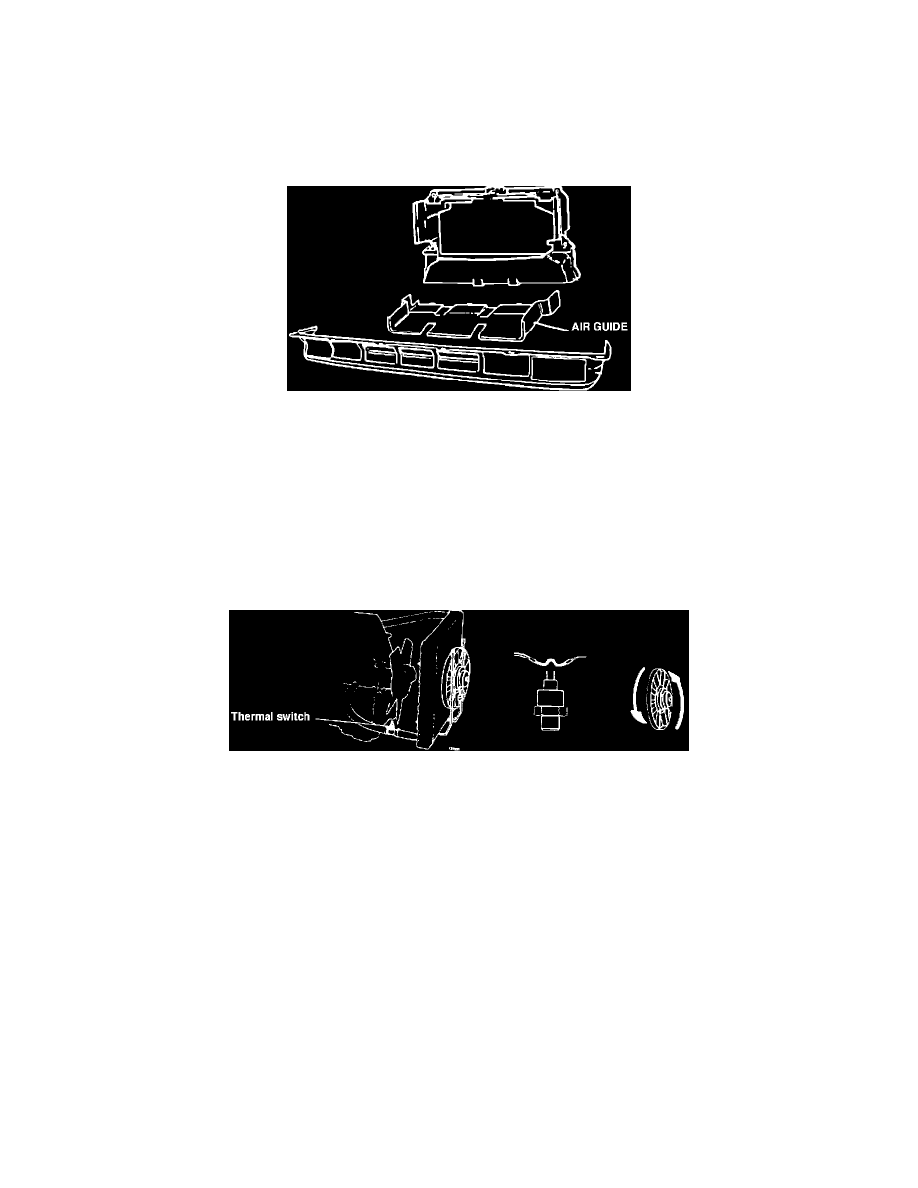740 L4-2.3L SOHC VIN 88 B230F (1985)

OPENING PRESSURE:
Black cap, marked 75 kpa = 65- 85 kpa ( 9.4 - 12.3 PSI)
Grey cap, marked 150 kpa = 145-155 kpa (21.0 - 22.5 PSI)
To leak test the cooling system, apply pressure at 60 kpa (8.7 PSI). Maximum allowed pressure drop is 3 kpa (0.4 PSI) in three minutes.
^
Air Guide
Make sure the air guide in the spoiler is properly installed.
^
A/C Condensor, Intercooler and Radiator
Check that the A/C condensor, intercooler and radiator are free from foreign objects. Make sure that the vertical sealing strips on the A/C condensor
are in position. If loose, they should be glued back in position.
^
Cooling Fan
Check cooling fan type and function. The fan clutch should increase the fan speed when it is exposed to an air temperature of 65 - 85~C
(149-185~F).
^
Electrical Cooling Fan
Check the function by connecting the two wires at the thermal switch located in the lower radiator hose. Ignition ON. The fan should start and rotate
counter-clockwise as viewed from the front (as illustrated).
^
Ignition Timing
Correct timing is 12 + 2~ BTDC at 750 rpm. Make sure that the ignition is advanced to approximately 25~ when the electrical cooling fan starts (see
Service Manual TP 30684/1 760 Turbo, Group 26 Page 59).
2.
UPGRADING, B230FT WITH AUTOMATIC TRANSMISSION
If the temperature gauge is reading high, or the engine overheats during extended idle and/or in stop-and-go city traffic, the following upgrading can
be carried out:
^
Radiator
The radiator core on the B230FT is made of aluminum. For improved cooling capacity at idle, a radiator with copper core is available under P/N
1266053-6. The copper core radiator was introduced in production from VIN 704-110188
^
Electrical Cooling Fan Switch
For earlier engagement of the electrical cooling fan, a 91~C (196~F) switch, P/N 1378504-3, is available. The new switch replaces the existing
